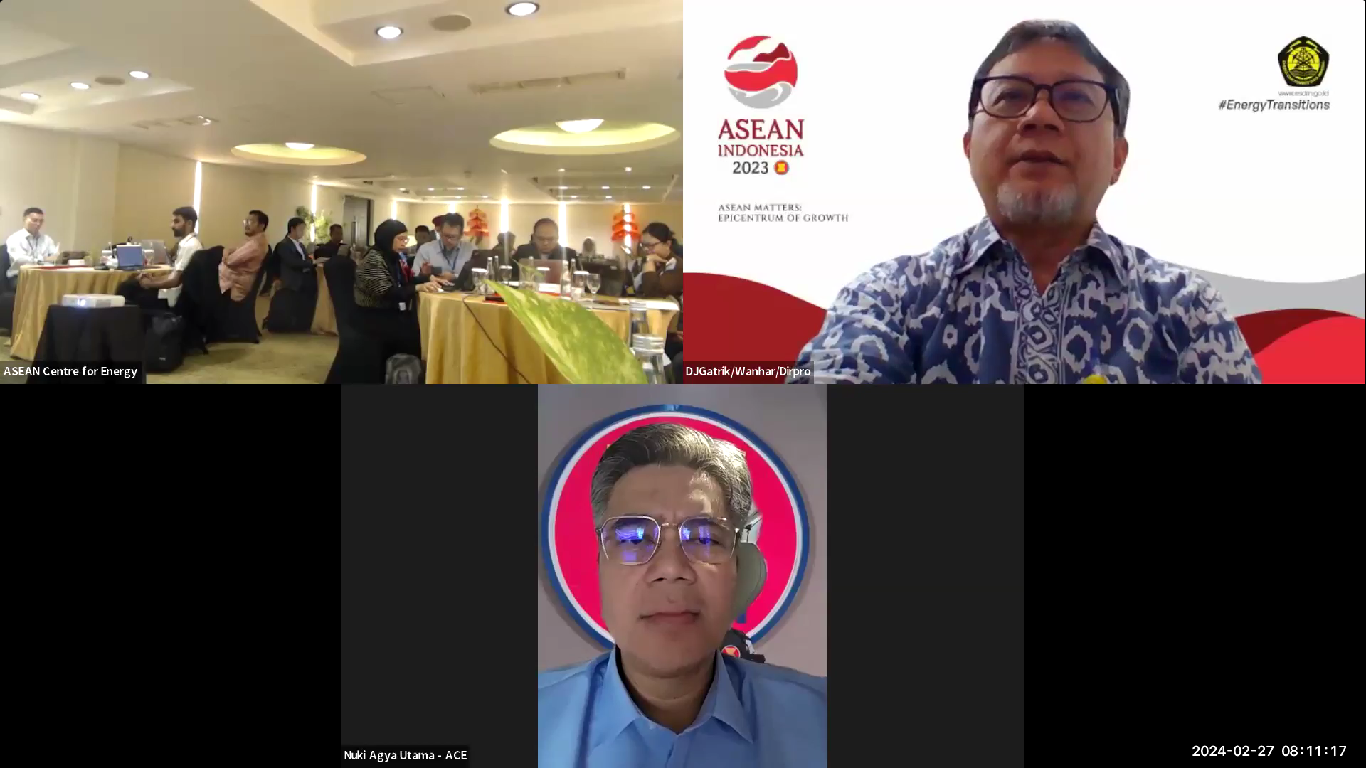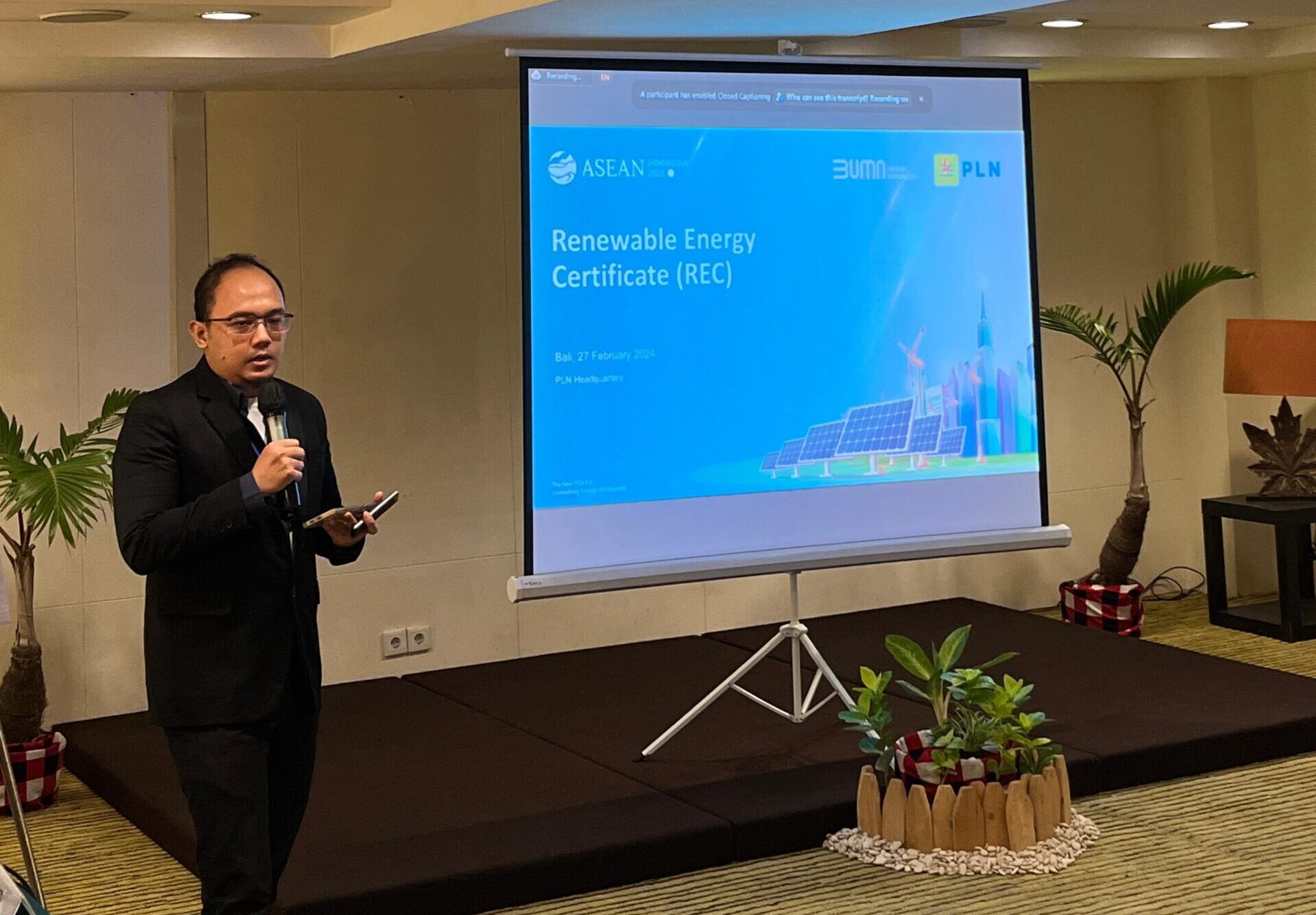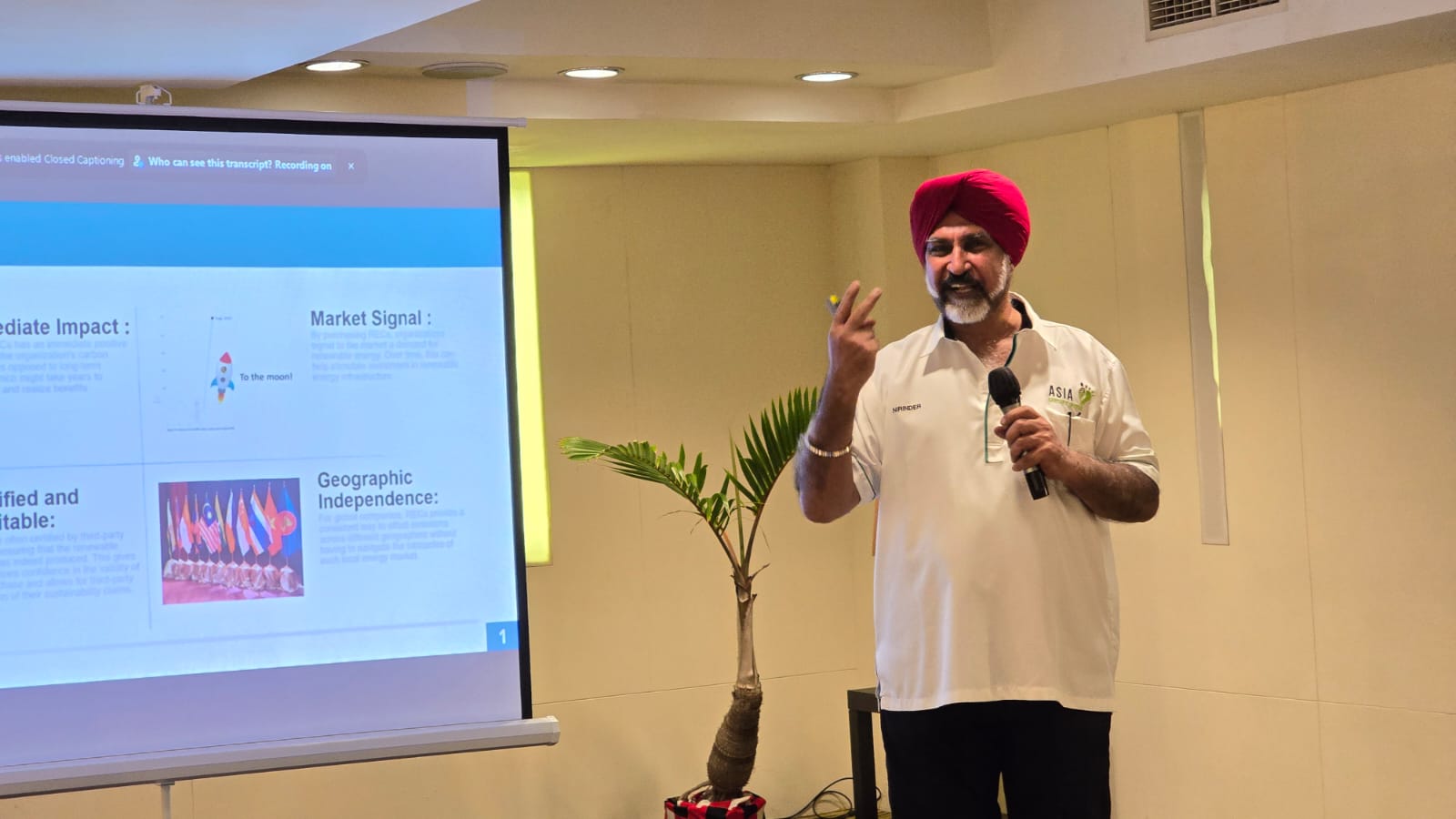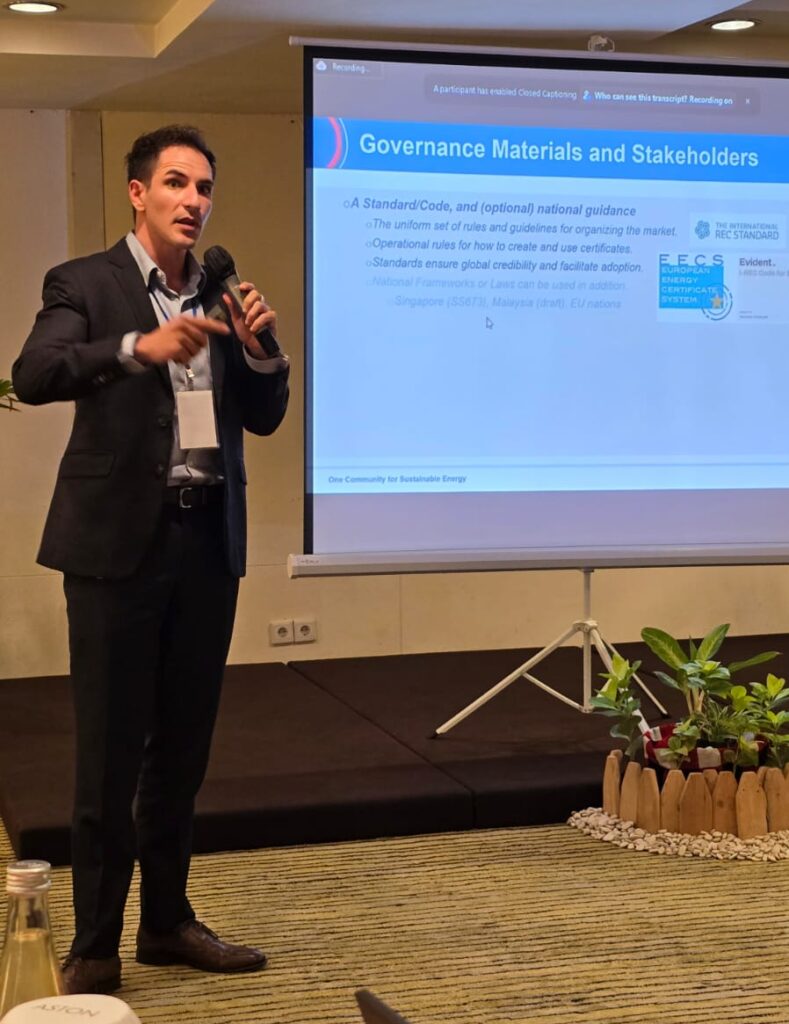Menu

The Bilateral Meeting on Indonesia’s Renewable Energy Certificate, supported by Asia Carbon XChange Plt and i-Track, was hosted by the ASEAN Centre for Energy (ACE) in Bali, Indonesia, on 27-28 February 2024. The focus of the meeting was to address the gaps in REC market practice within BIMP (Brunei Darussalam – Indonesia – Malaysia – Philippines) and its neighbouring countries.
The two-day discussion consists of six different sessions. These include the regulatory framework and status of the REC market in Indonesia, REC market designs, and best practices for ASEAN countries, the relation between REC market drivers and corporate sustainability reporting, and innovative REC market design specific to Indonesia.
The event commenced with a warm welcome from Mr Wanhar, Director of Electricity Program Development from the Ministry of Energy and Mineral Resources of Indonesia. Following that, Dr. Nuki Agya Utama, Executive Director of ACE. In his address, Dr. Nuki highlighted the significance of discussing Renewable Energy Certificates (RECs) among Indonesian policymakers. The aim is to enhance the national REC market practices, paving the way toward a clean energy future for both Indonesia and the ASEAN region.

Photo 1. Opening Remarks by Dr. Nuki Agya Utama, Executive Director of ACE
The first session started by introducing the regulatory framework and current condition of the REC market in Indonesia. The session consisted of update on the 2024 work plan for RECAP (Renewable Energy Certificate Project for BIMP Countries) by Veronica Ayu Pangestika, Associate Research Analyst of SRE of ACE, followed by a presentation on the regulatory framework of REC in Indonesia by Tony Susandy, Deputy Director of Technical and Environment of NRE from Ministry of Energy and Mineral Resources. REC market conception, price setting, design, and growth were elaborated by Indratno Pardiansyah, Corporate Transformation Manager of PLN. Fadolly Ardin, Sub-coordinator of Electricity Investment, Ministry of Energy and Mineral Resources, further enriched the session with the updates of cross-border interconnection projects in Indonesia. Lastly, Ario Panggi Pramono Jati, Inspektur Ketenagalistrikan Ahli Madya, Ministry of Energy and Mineral Resources of Indonesia, closed the session with the remark on redefining government role in REC development in Indonesia.

Photo 2. Presentation with Indratno Pardiansyah, Corporate Transformation Manager of PLN
The following session began with a presentation about best practice in REC market design from Roble P. Velasco Rosenheim, i-Track Standard Foundation and SuSca Group, and a comprehensive explanation of cases studies of REC market design with reference to the EU by Barry Jones, Market and Sustainability Analyst, SuSca Group. The objective of this session is to emphasize governance recommendations and implementation strategies for Indonesia and examples from ASEAN. This was followed by a discussion among all the participants, who discussed about the key features of different REC market designs in ASEAN and globally and the applicability of different case studies to Indonesia’s context, especially the most adaptable aspects.
The second day began with a session about understanding REC market drivers in relation to corporate sustainability reporting. A presentation about unveiling the demand drivers to cross-border REC trading was presented by Barry Jones, Market and Sustainability Analyst, SuSca Group. There was also a presentation about national, utility, and private sector needs in shaping REC policy by Nirinder Singh Johl, Founder and CEO of Asia Carbon XChange. This session was a deep dive into the forces shaping the future of REC development.

Photo 3. Presentation with Nirinder Singh Johl, Founder and CEO of ASIA Carbonx Change
The next session discussed redefining REC Market Designs in Indonesia and commenced with a comprehensive explanation of recommendations on Indonesia’s REC market designs for regional integration, delivered by Roble P. Velasco-Rosenheim of i-Track Standard Foundation and SuSca Group. This was followed by a roundtable discussion, where each participant engaged in dialogue to explore possible avenues to further accelerate REC development in Indonesia.

Photo 4. Presentation with Roble P. Velasco-Rosenheim of i-Track Standard Foundation and SuSca Group
The roundtable discussion was insightful. All the participants actively contributed to the discussion, sharing their views on the advantages and disadvantages of the current REC market design in Indonesia. They also suggested some specific recommendations that need to be adjusted or elaborated to suit Indonesia’s distinctive context and regulatory environment and identified the obstacles and difficulties that might arise.
The workshop closed with remarks from Beni Suryadi, Manager of ACE who emphasised the significance of these discussions for advancing the Renewable Energy Certificate (REC) system within Indonesia and the wider ASEAN region. He also pointed out that such cooperative dialogues are crucial for aligning regional energy policies.
